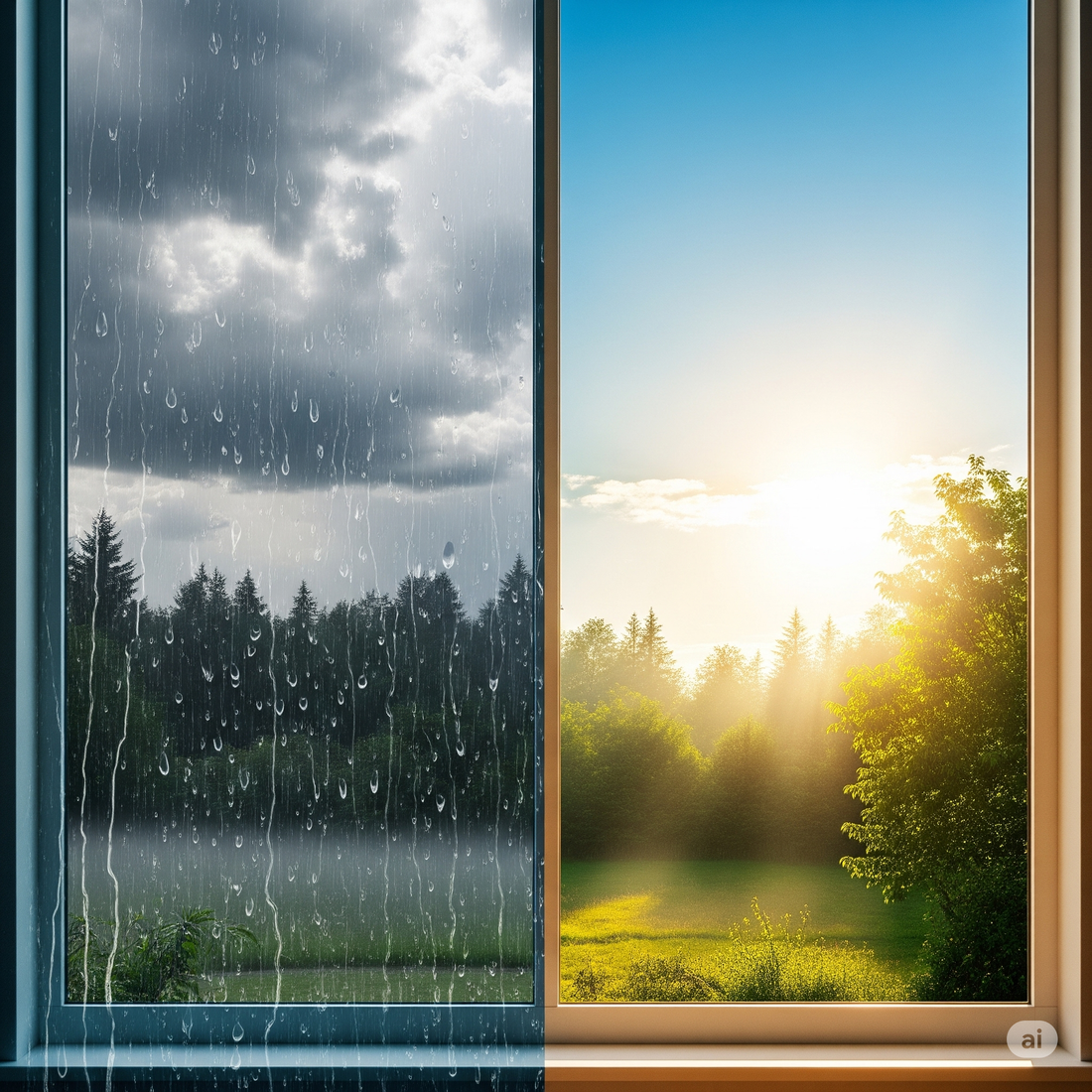
Should You Clean Windows Before or After It Rains?
Share
You finally set aside time to clean your windows—and then the forecast calls for rain. Should you go ahead with the cleaning or wait until the skies clear?
It’s a common question:
"Should I clean my windows before or after it rains?"
The answer might surprise you: Rain isn’t the problem—dirty windows are. Let’s break it down.
The Truth About Rain and Dirty Windows
Rainwater itself is not dirty. In fact, natural rain is relatively clean. The reason your windows look streaky or grimy after it rains has less to do with the rain—and more to do with the dirt and debris already on the glass.
When rain hits:
-
Clean windows? They dry mostly spot-free.
-
Dirty windows? The water activates dust and residue, causing streaks and water spots.
So, if your windows are already clean, rain won’t make them look bad.
Why You Should Clean Windows Before It Rains
If rain is in the forecast, it’s actually a great idea to clean your windows before it arrives.
Here’s why:
1. Rain Can Highlight Cleanliness
Freshly cleaned windows can withstand rain without streaking, giving you a clearer view even during storms.
2. Cleaner Glass Resists Buildup
Rainwater evaporates more cleanly off surfaces that don’t have built-up grime or pollution particles.
3. You’ll Save Time and Money
Waiting for the "perfect" dry weather means you could put off cleaning indefinitely. By staying on a regular cleaning schedule, you prevent tough buildup and make each clean easier and more effective.
What About Cleaning After It Rains?
There are still a few reasons you might want to clean after the rain:
-
If rain was heavy and wind-blown, it might have splashed mud or debris onto window sills or screens.
-
If your windows were already dirty, the rain may have made the grime more visible.
In those cases, a quick touch-up or spot clean can restore the clarity.
When Is the Best Time to Clean Windows?
For optimal results:
-
Choose a cloudy day. Direct sunlight can cause streaks as the cleaner dries too quickly.
-
Avoid windy days. Wind can blow dirt and pollen onto freshly cleaned surfaces.
-
Clean twice a year. Spring and fall are ideal, especially if you live in a dusty or rainy area.
Pro Tips for Long-Lasting Clean Windows
-
Use streak-free cleaners or a vinegar-water mix.
-
Dry with a squeegee or microfiber cloth.
-
Don’t forget the window tracks and screens—they trap debris and moisture.
For upper-story or hard-to-reach windows, consider hiring a professional window cleaning service. It’s safer and ensures spotless results.
Clean Windows, Rain or Shine
So, should you clean your windows before or after it rains?
Answer: Don’t wait for perfect weather—clean them before the rain if they’re overdue. Rain won’t hurt clean windows, but it will emphasize dirty ones.
